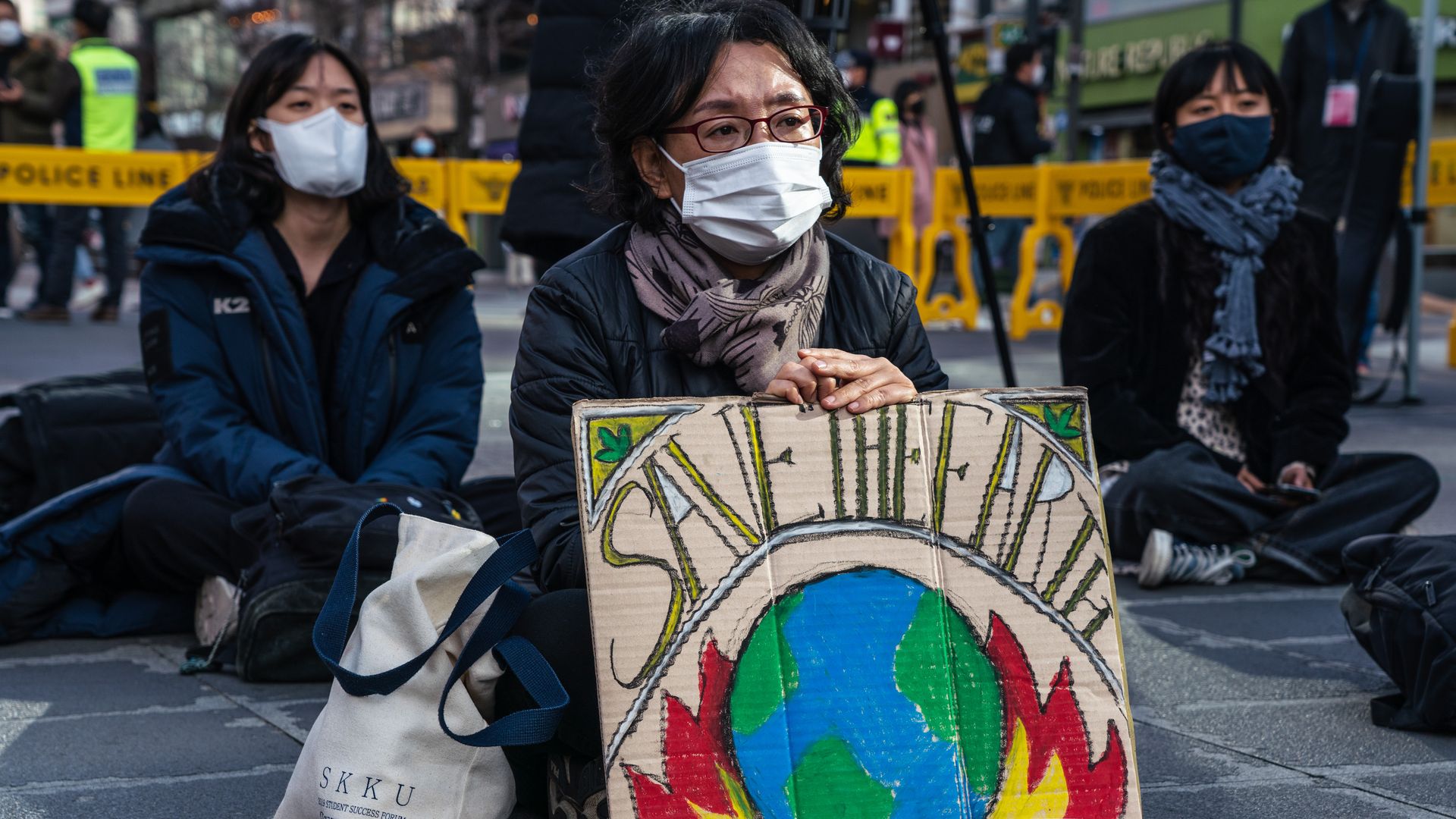Nov 23, 2020 - Science
WMO: Carbon dioxide levels continue to rise despite coronavirus lockdowns
Add Axios as your preferred source to
see more of our stories on Google.

A protestor wearing a face mask displays a placard reading 'Save The Earth' during the climate crisis protest in Seoul. Photo: Simon Shin/SOPA Images/LightRocket via Getty Images
